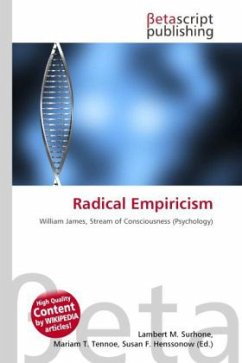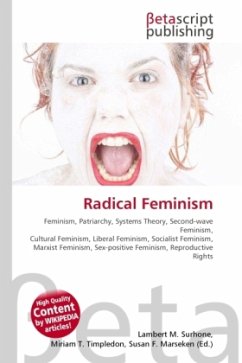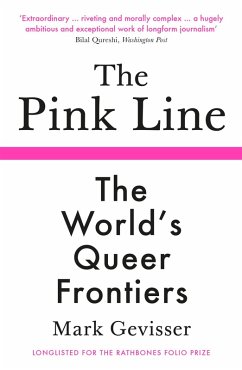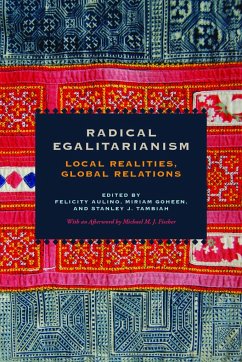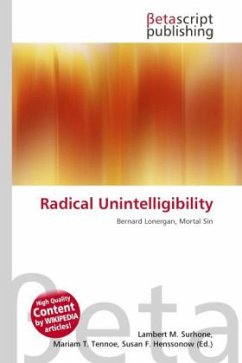
Radical Unintelligibility
Versandkostenfrei!
Versandfertig in 6-10 Tagen
32,99 €
inkl. MwSt.

PAYBACK Punkte
16 °P sammeln!
High Quality Content by WIKIPEDIA articles! Radical Unintelligibility, a term coined by Bernard Lonergan, is the philosophical idea that we can act against our better judgment. We can refuse to choose what we know is worth choosing. It is the refusal to make a decision that one deems one ought to make. Mortal sin is radically unintelligible: when we commit a mortal sin, we fully consent to do something despite knowing that it is wrong to do it. Fr. Bernard Lonergan, CC, SJ (17 December 1904 26 November 1984) was a Canadian Jesuit Priest. He was a philosopher-theologian in the Thomist tradition...
High Quality Content by WIKIPEDIA articles! Radical Unintelligibility, a term coined by Bernard Lonergan, is the philosophical idea that we can act against our better judgment. We can refuse to choose what we know is worth choosing. It is the refusal to make a decision that one deems one ought to make. Mortal sin is radically unintelligible: when we commit a mortal sin, we fully consent to do something despite knowing that it is wrong to do it. Fr. Bernard Lonergan, CC, SJ (17 December 1904 26 November 1984) was a Canadian Jesuit Priest. He was a philosopher-theologian in the Thomist tradition and an economist from Buckingham, Quebec. He taught at Loyola College (Montreal) (now Concordia University), Regis College (now part of the University of Toronto), the Pontifical Gregorian University and Boston College. He is the author of Insight: A Study of Human Understanding (1957) and Method in Theology (1972), which established what he called the Generalized Empirical Method (GEM). The University of Toronto Press is in process of publishing his work in a projected 25-volume collection edited by staff at the Lonergan Research Institute at Regis College.




